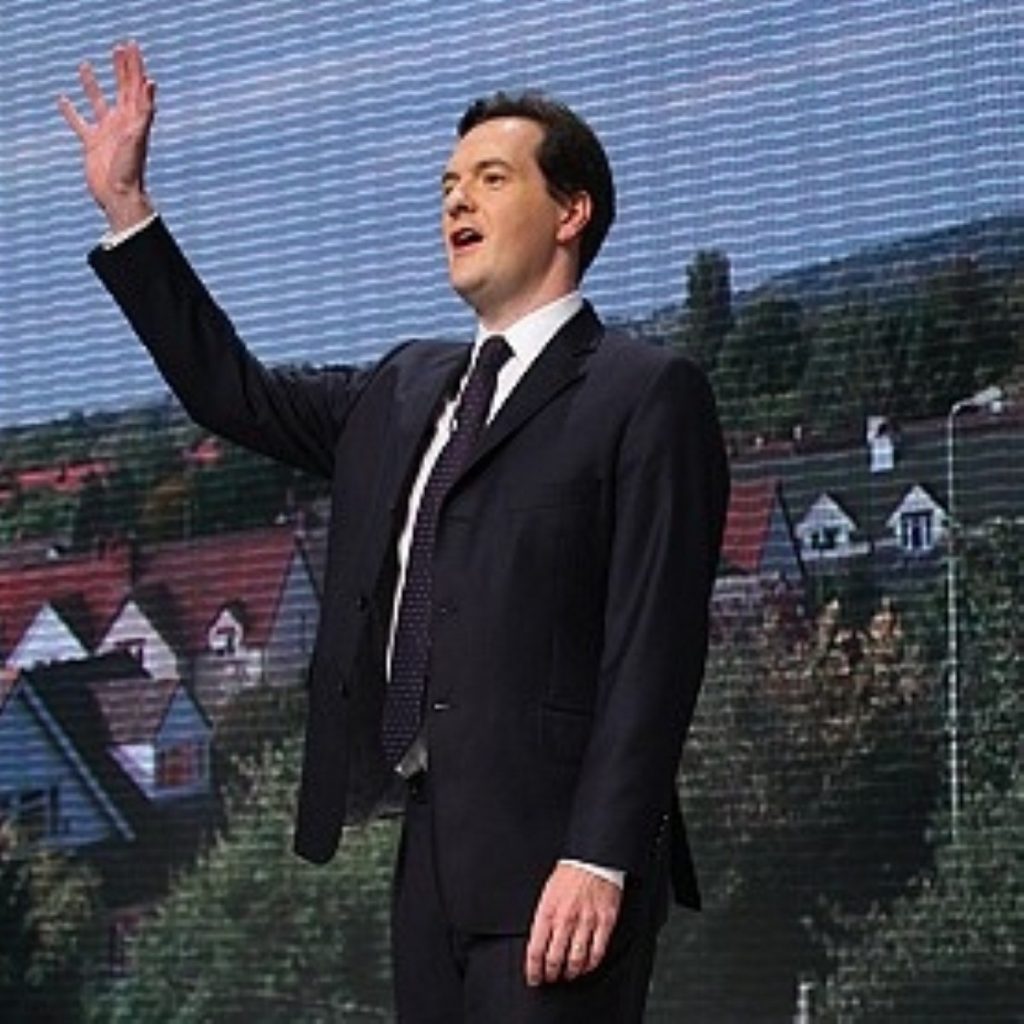Analysis: Osborne’s dangerous masterstroke
George Osborne’s speech to the Tory conference today was a remarkable approach to the political situation he finds himself in. This is risky business.
By Ian Dunt
Gordon Brown’s speech to the Labour conference last week may have been instantly undone by the next day’s Sun headline but it did force the Tories into a corner. By thundering forth with an avalanche of policies and concrete (uncosted?) commitments, he tacitly hammered home the Labour message: the Tories are all style and no substance.
That was a challenge the Conservatives have had to take up this week, as they navigate their conference in Manchester. George Osborne’s speech was their direct riposte. There were two substances on offer here; that of details, and that of dullness.


The dullness was a masterstroke. With little high-flying rhetoric and a speech consisting ultimately of a string of policies, he defended against the suggestion the Tories are basically an overrated PR operation, and consolidated the impression that they are sensible, rational men ready to get the country out of the financial mess it has found itself in.
But the details were the main line of attack. Not only were they legion – at least as plentiful as that from Labour – but they appeared to be costed. Some of those figures may not add up – such as the £7 billion of efficiency savings – but most look feasible. Their presence is message enough.
Taking a modest, policy-based approach to his keynote speech – especially when his political capital within the party has been steadily falling since last summer’s Deripaska affair – was a generous move. It allows David Cameron room to manoeuvre. With Osborne having proved the Tories’ substance, he can do what he does best: a perfectly pitched, well-crafted, big ideas set-piece conference speech. There will have to be a policy announcement or two in it, of course. But he no longer has to go down the ‘policy avalanche’ road which seemed so logical when we were all emerging from Brown’s pitch last week. With the detail settled, Cameron can now go on the rhetorical attack.
But this small act of self-sacrifice wasn’t the only hurdle Osborne had to get over to deliver this speech. He also had to present policies which would hurt people and still not scupper the party’s chances of winning an election. If your family earns over £50,000 and receives tax credits – which is a fair few voters – you now have a direct incentive to not vote Tory. Osborne appears to banking on the ultimate reasonableness of the British electorate – that it will react decently to a party which is honest with it. In its own way, this approach attempts to pick at the scar left over from Brown’s aborted attempts to contrast Labour investment with Tory cuts. That wasn’t honest. This speech was. Labour activists will print the speech off and take it campaigning with them. ‘Look at this bit here,’ they’ll say. ‘Vote Tory and you personally will lose money.’ It’s an unprecedented strategy, forced on the party by political circumstance, but bravely embraced nonetheless.
The way these cuts were framed was also brilliant. Keen to neutralise the manner in which Labour ministers have suggested the Tories are biting at the leash to cut public services – because of their political DNA – Osborne repeated over and over that “we’re all in this together”. Yes, it is a song from High School Musical. But its simplicity and saccharine resonance belies a smart political manoeuvre. Yes, public sector pay would be frozen, Osborne admitted, but that’s how we’ll save public sector jobs. And besides, those on incomes below £18,000 would not be affected. Child trust funds would only be scrapped in the case of better-off families. Only households earning over £50,000 would lose their tax credits. At every turn, Osborne was at pains to show his progressive, compassionate face.
This offered him a little political space to keep the inheritance tax proposal. For around a year now, Westminster insiders have grown increasingly convinced he should give up this idea as a symbol of the Tories’ increased sense of responsibility now that times are hard. To do so would lose the galvanising momentum it gave the party, and the love of all those people who it inspired, Osborne reasoned. He has kept it, but escaped criticism by submerging it in a vigorously different and honest speech.
Osborne played an intricate, risky game. The presentation may have been purposefully grey, but the content was not. Rarely has something so superficially dull contained so much that was fascinating and exciting.









